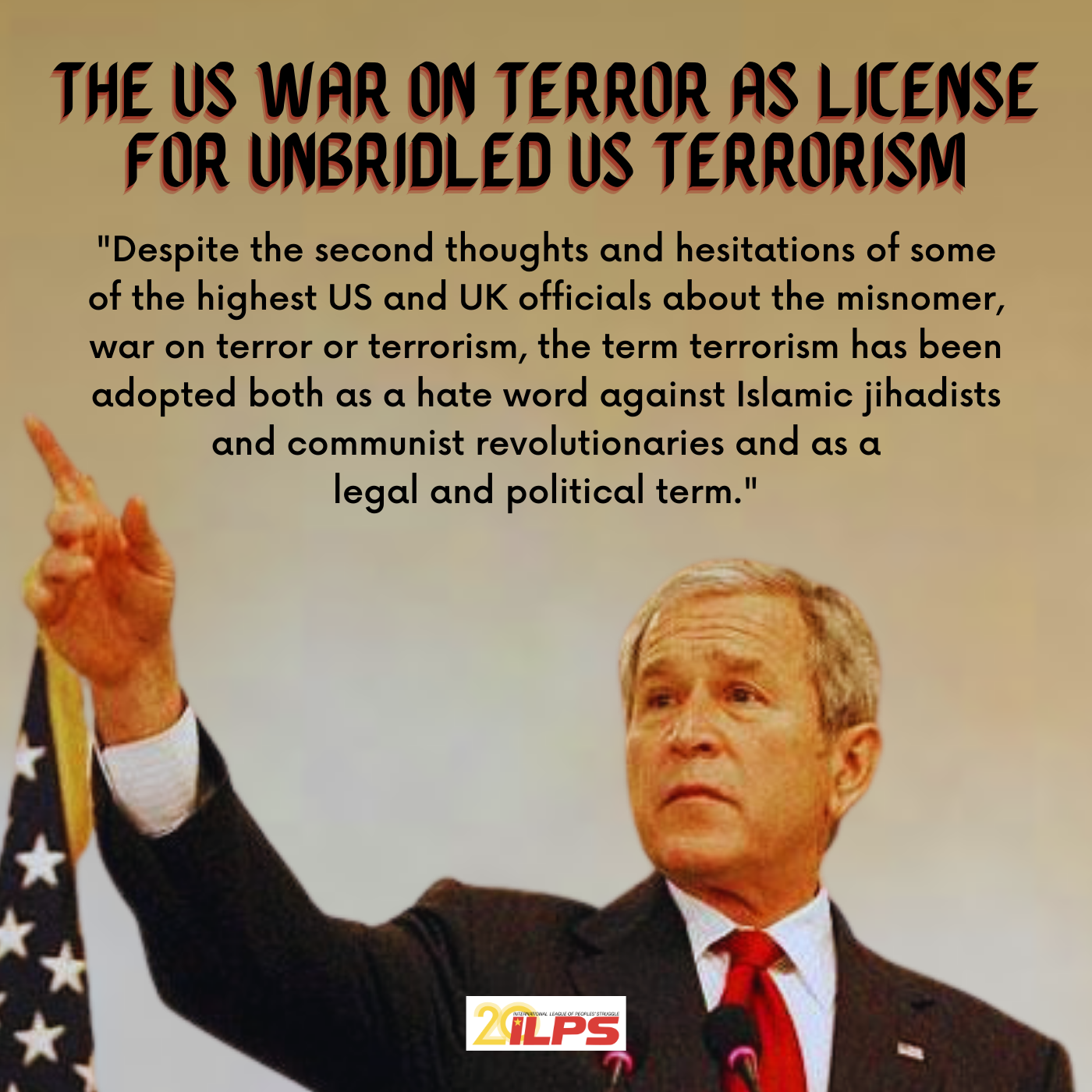On September 16, 2001, U.S. president George W. Bush used the phrase “war on terrorism” for the first time when he answered a journalist’s question about the impact of enhanced law enforcement authority given to the US intelligence agencies on Americans’ civil liberties: “This is a new kind of—a new kind of evil. And we understand. And the American people are beginning to understand. This crusade, this war on terrorism is going to take a while. And the American people must be patient. I’m going to be patient.”
Further, on September 20, 2001, during a televised address to a joint session of Congress, Bush said, “Our war on terror begins with Al Qaeda, but it does not end there. It will not end until every terrorist group of global reach has been found, stopped and defeated.” The term “war on terrorism” or “on terror” is a legal misnomer because the 9-11 attacks were crimes committed by a criminal organization like Al Qaeda and not by the army of an aggressor state or a belligerent force in a civil war.
The use of the misnomer, war on terror, ignited controversy because of its implications and consequences dangerous and prejudicial to the laws of war and human rights. In April 2007, the British government was the first government to announce publicly that it was abandoning the use of the phrase “war on terror” because it was misleading. Lady Elizabeth Manningham-Bullet, the former head of MI5, explained in a formal lecture that the 9/11 attacks were “a crime, not an act of war. So I never felt it helpful to refer to a war on terror.”
Probably because of his background as a Harvard student of law, U.S. president Barack Obama rarely used the term. But in his inaugural address on January 20. 2009, he stated: “Our nation is at war, against a far-reaching network of violence and hatred.” In March 2009 the US Defense Department officially changed the name of operations from “Global War on Terror” to “Overseas Contingency Operation” (OCO). In March 2009, the Obama administration instructed the Pentagon staff members to avoid the use of the term and instead to use “Overseas Contingency Operation”.
In May 2010, the Obama administration published its National Security Strategy which dropped the Bush-era phrase “global war on terror” and reference to “Islamic extremism,” and stated, “This is not a global war against a tactic—terrorism, or a religion—Islam. We are at war with a specific network, al-Qaeda, and its terrorist affiliates who support efforts to attack the United States, our allies, and partners.”
But inconsistently in May 2013, even two years after the killing of Osama bi Laden, Obama delivered a speech that used the term “global war on terror” put in quotation marks (as officially transcribed by the White House): “Now, make no mistake, terrorists still threaten our nation. … In Afghanistan, we will complete our transition to Afghan responsibility for that country’s security.
Beyond Afghanistan, we must define our effort not as a boundless “global war on terror,” but rather as a series of persistent, targeted efforts to dismantle specific networks of violent extremists that threaten America. In many cases, this will involve partnerships with other countries.”
Nevertheless, in the same speech, he emphasized the “legality of military actions” undertaken by the U.S., and stressed that the US Congress approved the use of force, “Under domestic law, and international law, the United States is at war with al Qaeda, the Taliban, and their associated forces. We are at war with an organization that right now would kill as many Americans as they could if we did not stop them first. So this is a just war—a war waged proportionally, in last resort, and in self-defense.” The use of the phrase “War on Terror” persists in US politics and US corporate media.
Despite the second thoughts and hesitations of some of the highest US and UK officials about the misnomer, war on terror or terrorism, the term terrorism has been adopted both as a hate word against Islamic jihadists and communist revolutionaries and as a legal and political term by executive officials, legislators, diplomats in the UN and other international bodies, academics, the mass media and others in the imperialist countries and in the client-states. The big irony is that the worst practitioners of aggression and state terrorism, especially US imperialism, are the most active users of the said term to generate Islamophobia and anti-communism.

